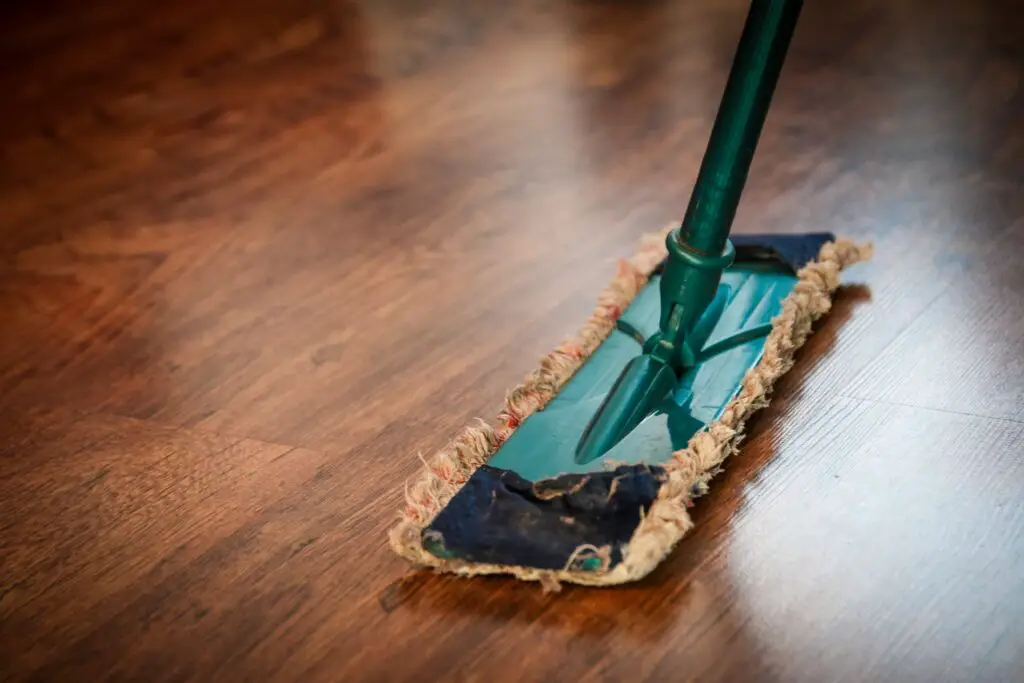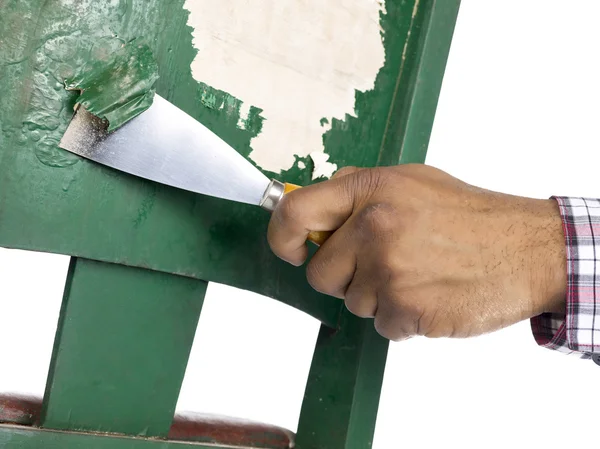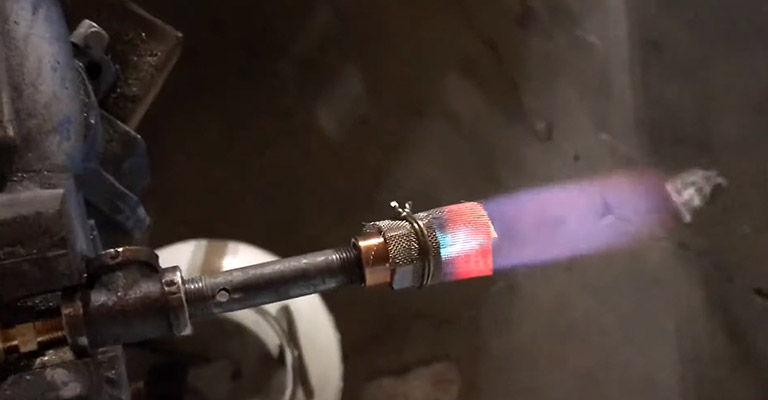Homemade Floor Cleaner Solutions for a Sparkling Home

In the quest for a clean and inviting home, the cleanliness of our floors plays a pivotal role. However, with the array of cleaning products available, it’s often challenging to find an effective solution that’s also safe and eco-friendly. Enter the world of homemade floor cleaners – a perfect blend of effectiveness, safety, and environmental consciousness.
Why Choose Homemade Floor Cleaners?
Health and Environmental Benefits
One of the foremost reasons to opt for homemade floor cleaners is their health and environmental benefits. Commercial cleaners often contain harsh chemicals that can be detrimental to both indoor air quality and your family’s health. These chemicals can cause respiratory issues, skin irritations, and other health problems. In contrast, homemade cleaners use natural ingredients that are gentle yet effective, minimizing health risks.
Customizability for Specific Needs
Homemade floor cleaners offer unparalleled customizability. You can tailor the ingredients to suit specific types of flooring, addressing unique cleaning challenges like tough stains or delicate surfaces. For instance, if you have hardwood floors, you can create a mild cleaner that preserves the wood’s integrity, something not always achievable with one-size-fits-all commercial products.
Reduced Plastic Waste and Eco-Friendly Choices
Choosing homemade cleaners significantly reduces plastic waste. Commercial cleaning products are often packaged in single-use plastic bottles, contributing to environmental pollution. By making your own cleaners, you can reuse containers, dramatically cutting down on plastic consumption. Furthermore, the eco-friendly nature of homemade cleaners means fewer chemicals are washed down the drain, reducing water pollution.
Cost-Effectiveness
Another compelling reason to make the switch is cost-effectiveness. Homemade floor cleaners are significantly cheaper to make compared to buying commercial products. The ingredients required, like vinegar, baking soda, and essential oils, are usually inexpensive and readily available. This affordability is particularly beneficial for households looking to economize without compromising on cleanliness.
Supporting a Sustainable Lifestyle
Finally, using homemade floor cleaners aligns with a sustainable lifestyle. By choosing natural ingredients and reducing reliance on manufactured chemicals, you contribute to a healthier planet. This approach resonates with those who are conscious about their environmental footprint and seek to live a more eco-responsible life.
Essential Ingredients for Homemade Floor Cleaners
Creating a homemade floor cleaner requires some basic ingredients, which are likely already in your pantry:
- Vinegar – A natural disinfectant and deodorizer.
- Baking Soda – Great for removing tough stains.
- Essential Oils – Adds a pleasant scent and additional cleaning properties.
- Castile Soap – A gentle, yet effective, cleaning agent.
- Water – The base for most cleaning solutions.
Recipes for Different Floor Types
Tile and Linoleum Floors: Mix 1 cup of vinegar with 1 gallon of warm water. Add a few drops of essential oil for fragrance.
Hardwood Floors: Combine ½ cup of vinegar with 1 gallon of water. Remember, less is more for hardwood floors to prevent damage.
Laminate Floors: A solution of 1 teaspoon of castile soap in 1 gallon of water works wonders.
Additional Tips for Effective Cleaning
Regular Maintenance for Lasting Cleanliness
Effective cleaning with homemade solutions starts with regular maintenance. Frequent sweeping or vacuuming can significantly reduce the dirt and debris accumulation, making the cleaning process more efficient. This proactive approach prevents the buildup of grime and makes your homemade floor cleaner more effective.
Right Tools for Enhanced Cleaning
Using the right tools can make a big difference. Microfiber mops and cloths are excellent for trapping dirt and are gentle on surfaces, reducing the risk of scratches. For tougher stains, consider using a soft-bristled brush to gently scrub without damaging the floor.
Spot Cleaning for Immediate Attention
For spills and stains, immediate spot cleaning can prevent long-term damage. Apply your homemade cleaner directly to the spill and gently blot or scrub as needed. This quick response can maintain the overall cleanliness and appearance of your floors between deeper cleaning sessions.
Consistency is Key
Consistent cleaning habits not only keep your floors looking great but also extend their lifespan. Setting a regular cleaning schedule ensures that your floors are maintained properly, preserving their beauty and functionality.
Common Mistakes to Avoid
Overuse of Water on Sensitive Surfaces
One of the most common mistakes in floor cleaning is using excessive water, especially on sensitive surfaces like hardwood or laminate. Excessive moisture can seep into these materials, causing warping, staining, and damage to the floor’s integrity. It’s crucial to use a damp, not wet, mop and to dry the floor promptly after cleaning.
Misjudging the Acidity of Cleaners
Another error is not considering the acidity of natural ingredients. Vinegar, for example, is excellent for many surfaces, but its acidic nature can damage natural stone or waxed wood floors. Always consider the compatibility of your homemade cleaner with your specific floor type.
Ignoring Manufacturer’s Recommendations
For certain types of flooring, manufacturers may provide specific cleaning instructions. Ignoring these recommendations can lead to unintended damage. It’s essential to refer to these guidelines, especially for materials like engineered wood, specialty tiles, or certain types of linoleum.
Overlooking Pre-Cleaning Steps
Skipping pre-cleaning steps like sweeping or vacuuming can make cleaning less effective. Dirt and debris can get smeared around by a mop, leading to streaks and an uneven clean. Always start with a thorough sweep or vacuum to ensure a cleaner surface for mopping.
Benefits of Using Homemade Floor Cleaners
Enhanced Indoor Air Quality
One significant benefit of homemade floor cleaners is the improvement of indoor air quality. Unlike many commercial cleaners that emit volatile organic compounds (VOCs) and other harsh chemicals, homemade solutions typically use natural ingredients. This reduces the risk of respiratory issues and allergic reactions, ensuring a safer environment for family members, especially children and pets.
Gentle Yet Effective Cleaning
Despite their mild nature, homemade floor cleaners can be remarkably effective. Ingredients like baking soda and vinegar have proven cleaning power, tackling grease, grime, and odors without the abrasive effects of chemical cleaners. This gentle effectiveness is particularly beneficial for homes with sensitive surfaces or antique furnishings.
Contribution to Sustainable Living
Using homemade floor cleaners aligns with sustainable living practices. By choosing biodegradable and environmentally friendly ingredients, you contribute to reducing harmful environmental impacts. This approach supports a lifestyle that values ecological responsibility and resource conservation.
Personal Health and Safety
Lastly, the health and safety aspect cannot be overstated. By avoiding synthetic fragrances, preservatives, and other potentially toxic ingredients found in many commercial cleaners, homemade options offer a safer alternative for everyone in the household. This peace of mind, knowing exactly what’s in your cleaning products, is invaluable for many families.
Enhancing Your Cleaning Experience
Maintaining Your Homemade Floor Cleaner
To keep your homemade floor cleaner effective, store it in a cool, dry place. If you’ve made a large batch, consider storing it in a reused bottle or jar. Always label your homemade solutions for easy identification. Remember, the shelf life of homemade cleaners can be shorter than commercial ones, so make them in small batches.
The Role of Sustainability in Homemade Cleaners
Homemade floor cleaners align perfectly with a sustainable lifestyle. By choosing natural ingredients and reusing containers, you’re contributing to a healthier planet. This aspect resonates with eco-conscious individuals who prefer products that support environmental well-being.
Safety Considerations
While homemade floor cleaners are generally safer than commercial alternatives, it’s important to use them responsibly. Keep them out of reach of children and pets, and be aware of any allergies or sensitivities to certain ingredients.
The Impact on Indoor Air Quality
Another advantage of homemade floor cleaners is their positive impact on indoor air quality. Commercial cleaners often release volatile organic compounds (VOCs) which can be harmful when inhaled. By using natural ingredients, you’re ensuring a healthier living environment.
The Versatility of Ingredients
One of the most remarkable aspects of homemade floor cleaners is the versatility of the ingredients. For instance, lemon juice can be a great addition for its natural bleaching properties. Cornstarch can be used in a pinch to polish floors. Understanding the properties of each ingredient allows you to tailor your cleaner to your specific needs.
Final Thoughts
The shift towards DIY floor cleaner solutions marks a significant step in adopting a healthier, more environmentally conscious lifestyle. By embracing the simplicity and effectiveness of these cleaning solutions, not only do we protect our cherished hardwood floors, but we also extend this care to laminate flooring and tile floors. The use of everyday ingredients like dish soap, when combined with other natural components, creates a potent yet gentle natural floor cleaner.
This approach is not just about maintaining the aesthetic of laminate wood floors or the shine of ceramic tile floors; it’s about nurturing a sustainable living practice that benefits both our homes and our planet. The convenience of having a DIY floor cleaner is unparalleled. Whether it’s mixing a solution in a spray bottle for quick touch-ups or changing a mop head for a thorough clean, the process is straightforward and adaptable.
From the delicate surface of a hardwood floor to the more robust nature of tile floors, these homemade solutions cater to a wide range of flooring types. By choosing to craft your own natural floor cleaner, you’re not just participating in a trend; you’re making a conscious decision to care for your home in the most responsible and effective way possible.





